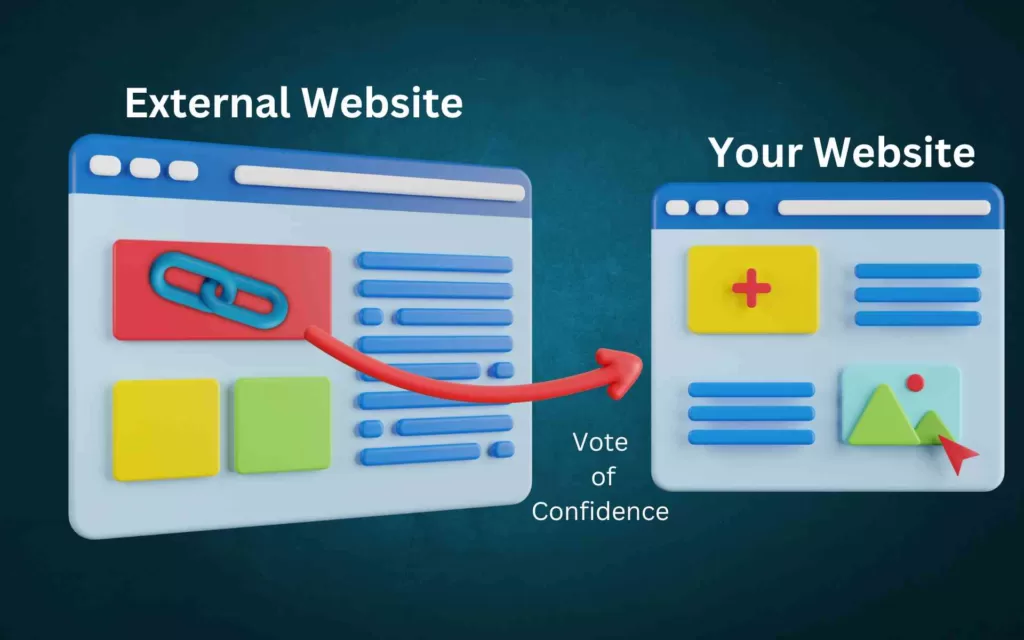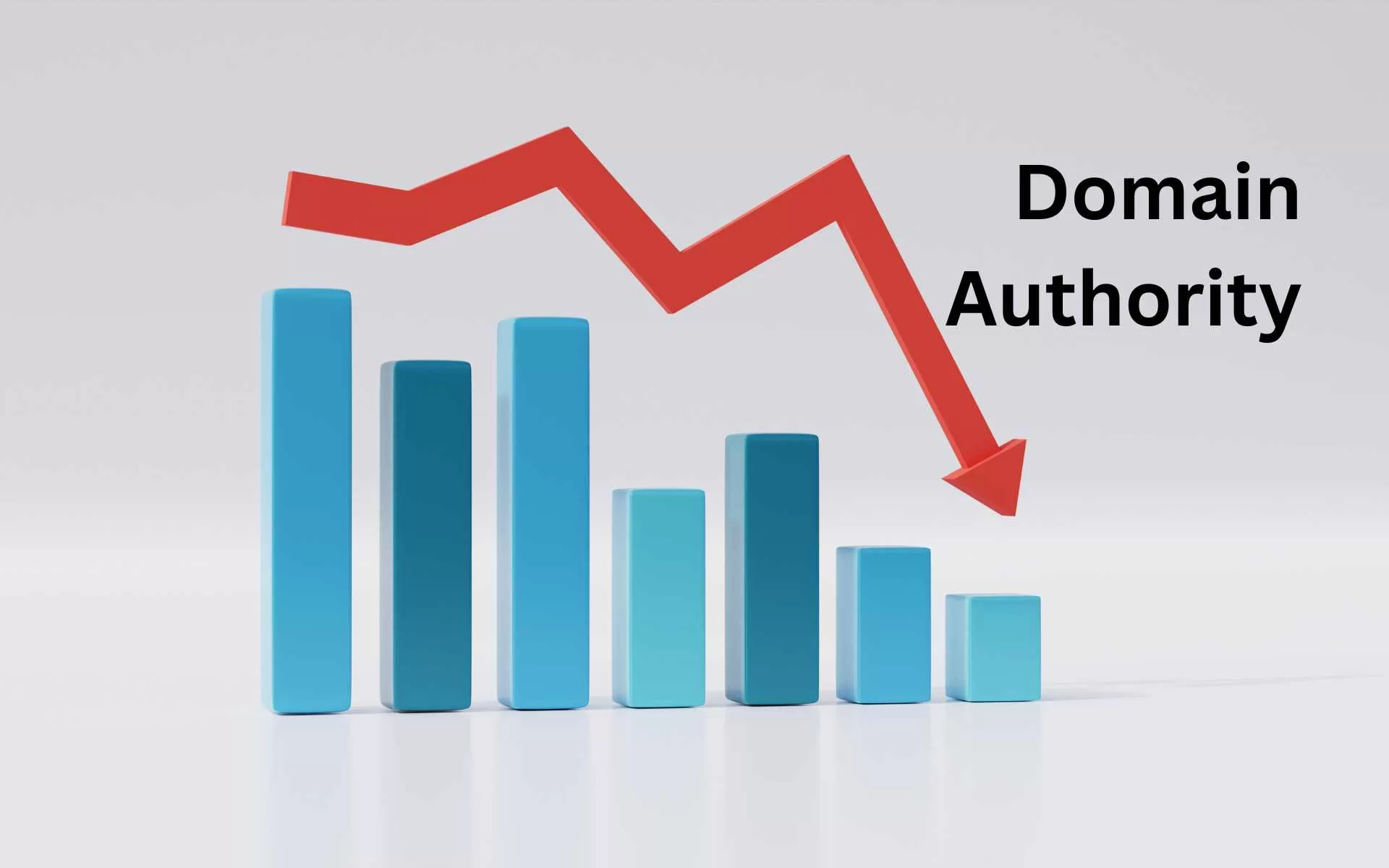Decreasing domain authority means that either your website is loosing backlinks or you are lagging on the SEO maintenance of your website.
In this article we will see what are the factors behind a decreasing domain authority and how you can recover your website from it.
Table of Contents
Top Reason – Lost Backlinks

Typically websites remove backlinks because either the information on your website is outdated or someone is providing better information for the same topic.
Another reason why you might be losing backlinks is that your website might be losing its position in Google search. This is typically the case we have seen for websites that provide news or information through data, charts, tables, etc.
Why are Backlinks Important?
Backlinks constitute a major portion of your domain authority score. They act as a vote of confidence to your website and are one of the four major factors (EEAT) on how Google judges your website.
The greater the number of high quality backlinks your site gets, the higher will be its domain authority. However, adding random backlinks won’t increase your domain authority.
Solutions For Lost Backlinks
The most common solution to compensate for lost backlinks is to acquire new ones from high quality sources.
You can acquire new backlinks from the following sources.
1. Press Release
Press Releases are by far the most effective backlinking tool that I have encountered in my entire SEO career. They are easy to get, are permanent and have the highest quality of links. Further, links from Press Releases also get you a considerable amount of traffic, as the websites where PR is posted are typically high traffic news websites.
2. Guest Posting
How to Identify Websites with High Quality Backlinks?
- Belong to the same industry or niche. For example, advertisement websites backlinking to digital marketing websites.
- Have a domain authority greater than your website.
- Mention your website either by its name, or by a keyword. This keyword has to be a part of your page/post title of the URL which is receiving this backlink.
- Do not have a high spam score. We prefer less than 25%.
- Are not from websites which have high amount of external links.
3. Podcasts
You can host podcasts and ask your host or guest to share it on their social media. If they have a good following, chances are that your podcast-related article or post will be picked up by some content writer and you will gain some backlinks.
4. Medium
Though many consider Medium to be a social media website and therefore of less link value, but Medium backlinks from high traffic pages give relatively high amount of backlinks to your website.
They also transfer a considerable amount of traffic to you.
5. Wikipedia
Wikipedia is the hardest website to backlink. Though some websites and SEO claim that their links is of no value, yet even no-follow backlinks from Wikipedia have more link value than even the best news agency websites.

Other Common Reasons for Decreasing Domain Authority
1. Common SEO Optimizations
- If you forget to update your article from time to time, they lose freshness and Google de-indexes them or decrease their rankings.
- Headline and Meta Description optimizations with the keyword of the article.
- Lack of proper schema.
2. Spam Backlinks
Spam backlinks are those which are from websites with a high spam score. To check the spam score of any website, you can use this tool, Website SEO Checker. Any spam above 25% should be avoided.
How to remove Spam Backlinks?
Spam backlinks can be removed using a simple trick. You can make a list of URLs that you think have a high spam score. Then you can use the Google Disavow tool to submit the list of these URLs.
Be careful, Google disavow tool is difficult to use and can cause serious damage to your website if wrongly used.
At Ingeniare AI, we can help you disavow spam backlinks for a minimal $10 cost.
3. Lack of Redirection when URL Changes
When you change the URL of an existing page, chances are that you might not have created a proper redirection. Lack of proper redirection leads to lost backlinks which were present in the previous version of the URL.
You should also redirect URLs to new pages when deleting a web-page or merging articles or pages.
4. Buying Old Domains
Old Domains have a lot of backlinks with them. Whenever you buy an old domain, make sure you use the internet wayback machine to check for old URLs and make a list of them. Then you should redirect all the URLs to the root domain.




